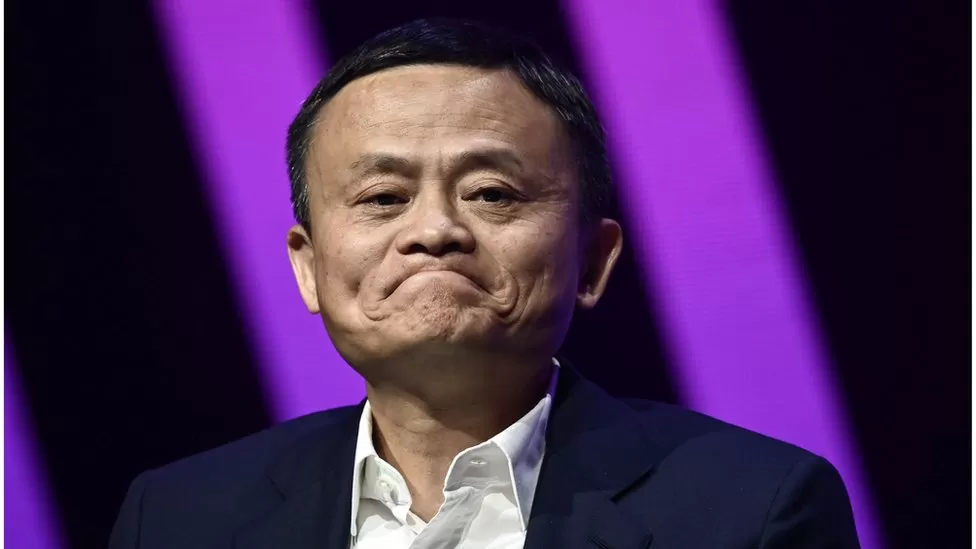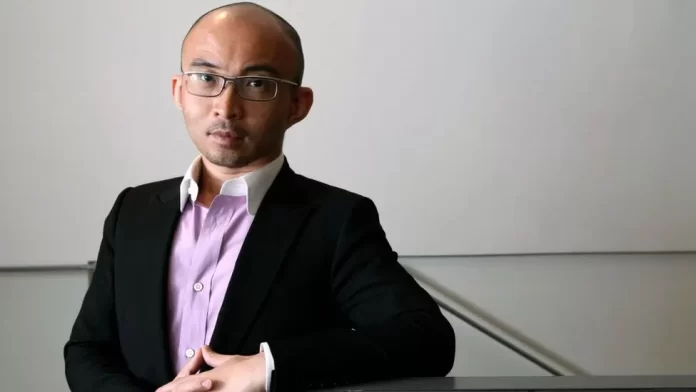The disappearance last month of technology industry dealmaker Bao Fan has rekindled interest in a recent Chinese phenomenon – vanishing billionaires.
The founder of China Renaissance Holdings – with a client list that has included internet giants Tencent, Alibaba and Baidu – is seen as a titan in the country’s tech sector.
Mr Bao’s case has followed a well-trodden path: he went missing for days before his company announced that he was “co-operating in an investigation being carried out by certain authorities in the People’s Republic of China“.
As has also become customary, there has been no word yet on which government body is carrying out the probe, what it is about or Mr Bao’s whereabouts.
The mystery shrouding his disappearance comes after a number of Chinese business leaders have gone missing in recent years, including Alibaba boss Jack Ma.
While vanishing billionaires tend to get much more attention, there have also been a number of less publicised cases of Chinese citizens going missing after taking part in, for example, anti-government protests or human rights campaigns.
Mr Bao’s disappearance has once again shone a spotlight on the view that this is one of the ways that President Xi Jinping is tightening his control of China’s economy.
It came in the run-up to the annual National People’s Congress (NPC), a rubber-stamp parliament, at which plans for the biggest overhaul in years of China’s financial regulatory system were announced this week.
A new financial regulatory watchdog will be set up to oversee most financial sectors. Authorities said this would close current loopholes caused by multiple agencies monitoring different aspects of China’s financial services industry, worth trillions of dollars.
In 2015 alone, at least five executives became unreachable, including Guo Guangchang, chairman of conglomerate Fosun International, which is best known in the West for owning English Premier League football club Wolverhampton Wanderers.
Mr Guo went missing in December of that year, with his company announcing after his reappearance that he had been assisting with investigations.
Two years later Chinese-Canadian businessman Xiao Jianhua was taken from a luxury hotel in Hong Kong. He had been one of China’s richest people and last year was jailed for corruption.
In March 2020 billionaire real estate tycoon Ren Zhiqiang vanished after calling Mr Xi a “clown” over his handling of the pandemic. Later that year, after a one-day trial, Mr Ren was sentenced to18 years in prison on corruption charges.
The most high-profile disappearing billionaire was Alibaba founder Jack Ma. The then-richest person in China vanished in late 2020 after criticising the country’s financial regulators.
The planned mega-listing of shares in financial technology giant Ant Group was shelved. And despite donating almost $10bn (£8.4bn) to the ‘Common Prosperity’ fund, he has not been seen in China for more than two years. He has also not been charged with any crimes.

Mr Ma’s whereabouts remain unclear, although there have been reports of him being seen in Japan, Thailand and Australia in recent months.
The Chinese government insists the actions taken against some of the country’s richest people are purely on legal grounds and has pledged to root out corruption. But Beijing’s actions also come against the backdrop of decades of liberalisation of what is now the world’s second largest economy.
This opening up helped to create a swathe of multi-billionaires who, with their immense wealth, had the potential to wield considerable power.
Now, some observers say, under Mr Xi, the Chinese Communist Party wants that power back and it is going about the task in ways that are often clouded in mystery.
The theory goes like this: Big business, especially the technology industry, saw its power grow under the policies of Mr Xi’s predecessors Jiang Zemin and Hu Jintao.
Prior to that, Beijing’s focus had been on traditional centres of power, including the military, heavy industry and local governments.
While maintaining a tight grip on these areas, Mr Xi has widened his focus to bring even more of the economy under his control. His Common Prosperity policy has seen major crackdowns in much of the economy, with the technology industry coming in for particular scrutiny.
“Sometimes, these incidents are orchestrated in a way to send a wider message, particularly to a specific industry or interest group,” Nick Marro from The Economist Intelligence Unit told the BBC.
“At the end of the day, it does reflect an attempt at centralising control and authority over a certain part of the economy, which has been a key feature of Xi’s governance style over the past decade,” he added.
“Beijing remains focused on ensuring that big technology platforms and players do not develop their own brands and influence that makes them difficult to rein in and more likely to go against Beijing’s preferences,” Paul Triolo, head of China and technology policy at global advisory firm Albright Stonebridge Group said.
Also key to Common Prosperity is the rule of law and that the rules must apply to rich or poor alike.
Beijing maintains that the policy is aimed at narrowing the widening wealth gap, which many agree is a major issue that could undermine the Communist Party’s position if left unaddressed. The country has seen growing inequality – and Mr Xi is said to face pressure from ultra-leftists who want to move closer to the party’s socialist roots.
The mystery surrounding the billionaires’ disappearances as well as wider concerns over Beijing’s approach to business may have significant unintended consequences.
Some China watchers suggest the government risks deterring new business talent.
“The danger for Beijing in making targets out of tech billionaires is putting more pressure on technology entrepreneurs hoping to become the next Jack Ma,” Mr Triolo said.
Mr Xi appears aware of the risk of spooking business sentiment, and in a speech to NPC delegates this week he stressed the importance of the private sector to China.
But he also called on private enterprises and entrepreneurs to “be rich and responsible, rich and righteous, and rich and loving”.
Besides the announcement of a new financial watchdog, bankers were also warned last month to not follow the example of their “hedonistic” Western counterparts.
Commentators see this as further evidence that Mr Xi has the financial system in his sights.
“In recent months, we’ve been seeing hints of the Common Prosperity agenda bleed into financial services, particularly in regards to remuneration and bonus schemes for senior executives, as well as the pay gaps between management and junior staff,” Mr Marro said.
It remains to be seen whether or not Mr Xi’s crackdown on billionaires will help him significantly tighten his grip on power.
What is certainly at risk though is confidence in China’s financial markets, businesses and ultimately the economy as a whole.




